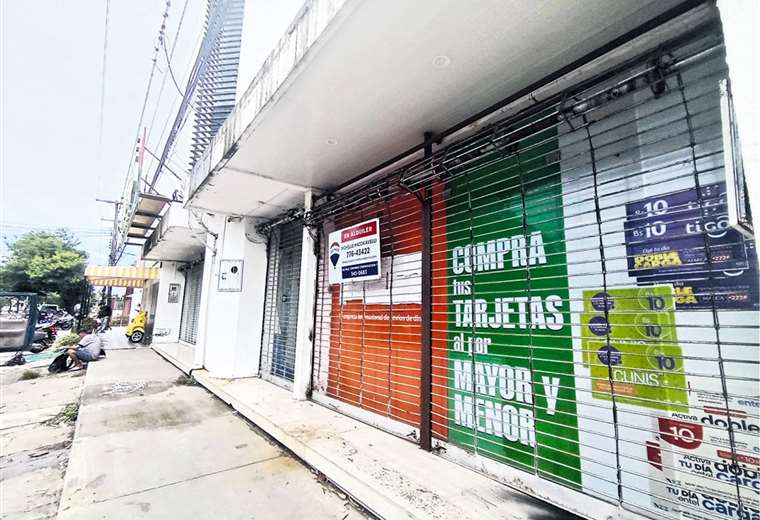November 25, 2024, 6:00 AM
November 25, 2024, 6:00 AM
At the beginning of this month, the CIS Express platform in Bolivia reported that as of November 22, five “non-financial correspondents” (entity branches that make money transfers), four in Santa Cruz and one in Cochabamba, were closing operations. Financial experts see that this is due to a lack of operation due to the shortage of dollars.
EL DEBER toured the four locations in the capital of Santa Cruz and at least three offices were evacuated, while in one there was a sign attached to the blindex glass that said “indefinite closure.”
The Financial System Supervision Authority (ASFI) reported that the firm that closed those five branches, “is a company incorporated abroad that maintains correspondent contracts in Bolivia with financial entities, which work through financial correspondents and non-financial correspondents.” financial institutions, which carry out their operations according to market demand.”
In Bolivia, according to the same state entity, there are six companies that are dedicated exclusively to money transfers and remittances. These same operations can be carried out in 11 banking entities, 26 savings and credit cooperatives, two housing financial entities, five development financial institutions and eight exchange offices.
The ASFI carries out on-site and off-site supervision tasks to these institutions within the Regulation for Money Transfer and Remittance Companies.
Combined factors
Jaime Dunn, financial analyst, stated that in Bolivia this problem is due to a combination between the lack of dollars and the slowdown of some economies in the world, which is affecting remittances in various ways.
“In Bolivia the shortage of dollars has exacerbated all this problem. Many people, for example, have chosen to use informal mechanisms to send currency. This prevents the conversion to local currency, affecting remittance companies, leading them to greater informality in sending remittances,” said Dunn.
He added that this has been “shrinking” the business of remittance companies that are legal and formal, which have been affected by the “informalization” of this shipping process.
On the subject, economist Fernando Romero pointed out that this is because there is not much certainty regarding the world economy and gave as an example the drop in remittances sent from countries like Chile and Spain, where a significant number of compatriots live. .
“It is no longer a good business because if they send you in dollars here the company, which can be local or international, has to get dollars at a price that is now close to Bs 12. So, a flow of those people (who collected that money) have seen other alternatives on other digital platforms or even send through a more informal system.”
The latest BCB data for September 2024, remittances were $100.44 million, 2% less than in August.















